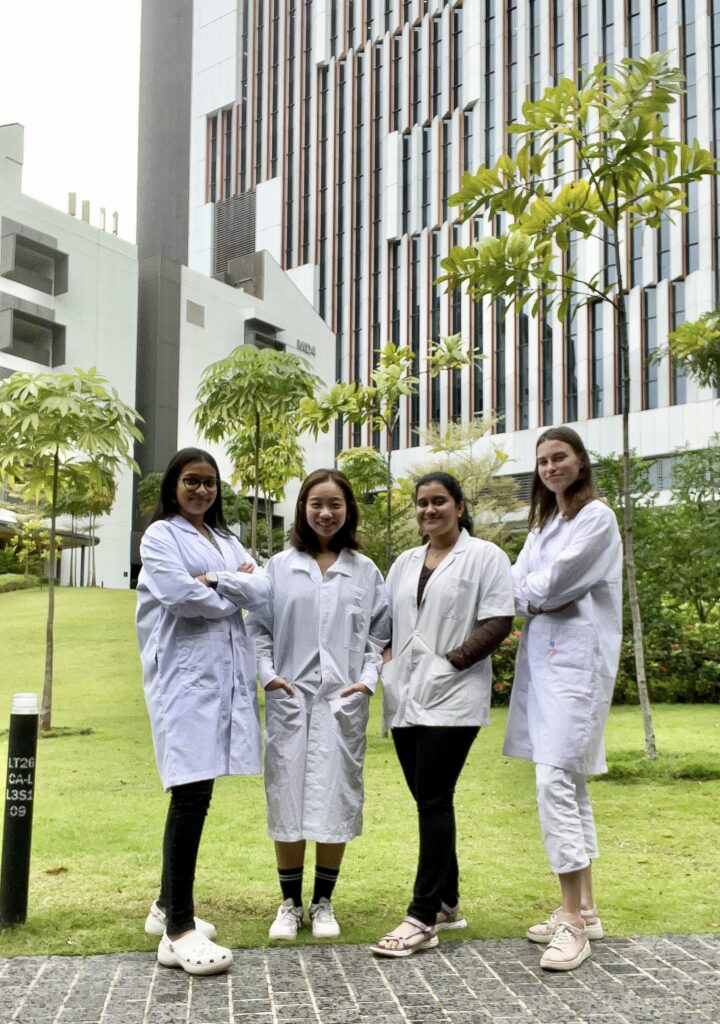MSc Biotechnology students among winners of Fuel Asia Innovation Challenge 2022

In November, 4 of our MSc Biotechnology students, Shristi Debata, Srijini Pal, Ang Wee Ping Nicole, and Anastasia Alenova, took part in the Fuel Asia Innovation Challenge 2022, a 9-day virtual health innovation competition. The team emerged 2nd from 410 participants and 45 teams.
We follow their journey with a short account from the winners,
The project idea was inspired by a personal story of one of our teammates – Shristi, whose grandmother was an Alzheimer’s patient and suffered from a fatal accident. Research shows that one of the leading causes of death of Alzheimer’s patients could be due to accidents and falls. Hence it is not only an important problem that we wish to address but also one that is often neglected. Our innovation aims to overcome this problem by creating a device that can monitor patients 24/7 and provide some sense of relief to their caregivers and loved ones.
NASS biotech was formed during a module all 4 of us attended in our first semester (Case Studies in Biotechnology (BL5601)). We worked together as a team and got to know each other really well. Our final assignment, which was a business pitch, brought out the best of our skills and inspired us to participate in the Fuel Asia innovation challenge as a team. It also made us confident to try something new and take up this challenge. With all the skills that we acquired through the module, we thought this would be a great platform to put our learning to use.
When we initially joined the challenge, our primary aim was to meet new innovators, learn new skills and put our knowledge to use. Little did we know that our idea had the potential to create an impact and help save lives. Winning this challenge definitely motivates us to develop our project into a real time solution. The great feedback that we received from our mentors and judges inspires us to translate our idea into a prototype. For the time being we are waiting to receive a video recording of our final pitch so that we can take some feedback from our professors at NUS. We will be looking for funding and further collaboration to achieve our goals in the near future. We will also be on the lookout for other such competitions and opportunities for funding inside NUS. Because this is a novel idea that hasn’t been done before, we hope to make some progress and share our results as soon as we can.
Once again, NASS Biotech would like to thank the department for their support, and we eagerly look forward to seeing where we can take our project.
Congratulations once again and we hope their journey inspires more budding biologists and aspiring entrepreneurs.
